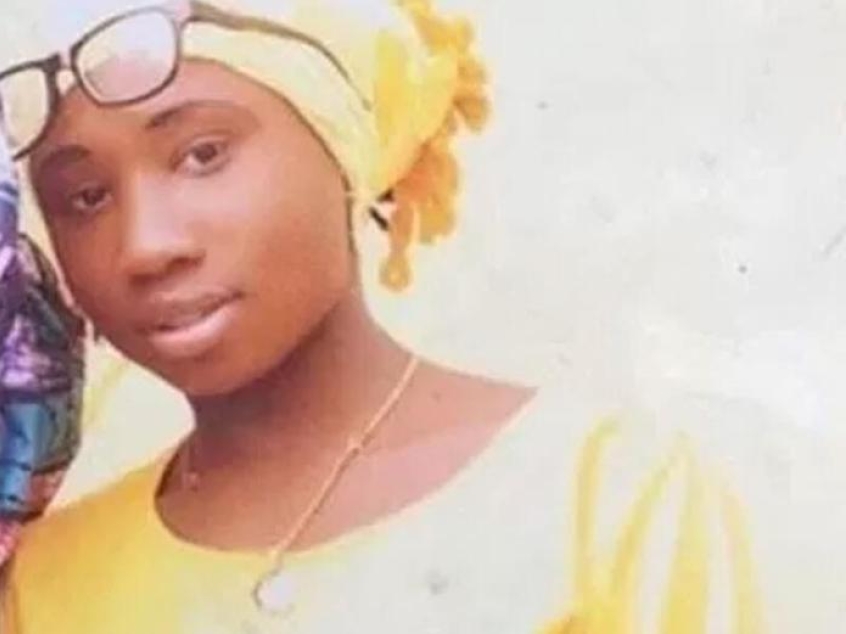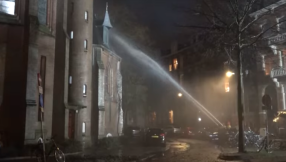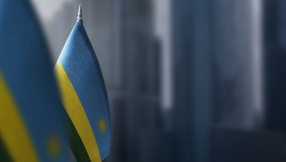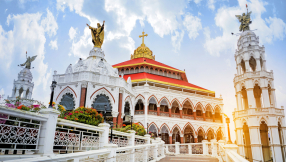Leah Sharibu is one of more than 1,000 girls who have been kidnapped by Boko Haram in Nigeria since 2013.
But her case is unique because it strikes at the heart of the Islamist militant group's targeted campaign.
Sharibu was one of 110 schoolgirls abducted by the al Barnawi faction of Boko Haram on February 19 this year from the Government Girls Science and Technical College in Dapchi, Yobe state. Five girls died en route to the terrorists' hideout, giving an idea of the conditions they were kept in.

That left 105. After more than a month of government negotiations with the terrorist group, Boko Haram agreed to return the girls. On March 21, trucks swept back into Dapchi, to the same school from where they were taken.
104 girls got out. Leah Sharibu was the only girl the militants refused to release.
Her school friends later told of how she had refused to deny her Christian faith. 'Boko Haram told Leah to accept Islam and she refused,' two girls told Leah's mother, according to the Guardian. 'So they said she would not come with us and she should go and sit back down with three other girls they had there.
'We begged her to just recite the Islamic declaration and put the hijab on and get into the vehicle, but she said it was not her faith, so why should she say it was? If they want to kill her, they can go ahead, but she won't say she is a Muslim.'
Now more than a month since they heard any news of their daughter, Leah's parents are desperate and feel Nigeria's president, Muhammadu Buhari, has forgotten their plight.
Her church, the Evangelical Church Winning All (ECWA), is one of the largest denominations in Nigeria and has mounted a sustained campaign to put pressure on Buhari to ensure her release.
Rev Yunusa Nmadu is general secretary to the ECWA which has just come to the end of three days of prayer and fasting as part of their campaign.
'It has not been easy for the family,' he tells Christian Today. 'We believe she is alive, but there is no news at all about how she is doing.'
Their cause has been aided by Donald Trump, the US president, who took the Nigerian president to task for not doing more to stem the violence. In a joint press conference at the White House he said: 'We are deeply concerned by religious violence in Nigeria including the burning of churches and the killing and persecution of Christians. It's a horrible story.'
He said: 'We encourage Nigeria and the federal state and local leaders to do everything in their power to immediately secure the affected communities and to protect innocent civilians of all faiths including Muslims and including Christians.'
But for Nmadu, who is also chief executive of the religious freedom group CSW-Nigeria, the question is around a lack of will, not a lack of resources, to stop the conflict.
'I think that if the Nigerian military wanted to end this they could easily end this,' he says, referring to broader violence against Christians in Nigeria.
'It looks like our military is compromised,' he adds. 'Generals in the military in Nigeria are compromised.'
When pressed on why he thinks that, Nmadu repeats a theory cited by others in Dapchi that the government's negotiations with Boko Haram go a lot further than simply securing the release of captives.
'For instance the day the Dapchi girls were captured they [military commanders] withdrew the security normally there. They withdrew them just hours before the Boko Haram people came and they had an easy passage to go and pick those girls.
'Then when they were going to return the girls the security guards were removed from the road they would come by. So the Boko Haram commanders could come in and speak to the villagers and leave without interference.
'Tell me if that is not compromised.'
A damning report by Amnesty International backs up Nmadu's account. It suggests security forces were warned beforehand about the abduction but did nothing to stop it. They also received reports that Boko Haram militants were seen en route to Dapchi on the day of the attack but failed to engage them.
'The Nigerian authorities must investigate the inexcusable security lapses that allowed this abduction to take place without any tangible attempt to prevent it,' said Osai Ojigho, Amnesty International's Nigeria Director.
'The Nigerian authorities have failed in their duty to protect civilians, just as they did in Chibok four years ago. Despite being repeatedly told that Boko Haram fighters were heading to Dapchi, it appears that the police and military did nothing to avert the abduction.'
The murky details of the government's engagement with Boko Haram remain unclear. Although the government insists no ransoms were paid the girls were immediately driven to Abuja, Nigeria's capital, upon their return where they had a private meeting with Buhari.
For her parents, Nmadu and the wider ECWA movement, the saga has gutted what little confidence they had in Buhari's government to deal with the ongoing crisis facing Christians in Nigeria.
'The government keeps assuring us that they are in touch with the terrorists to negotiate her release,' Nmadu says. 'But what baffles us at the moment is how they negotiated for the release of 104 others but not the only one Christian girl. That is something the government needs to provide answers to.'













